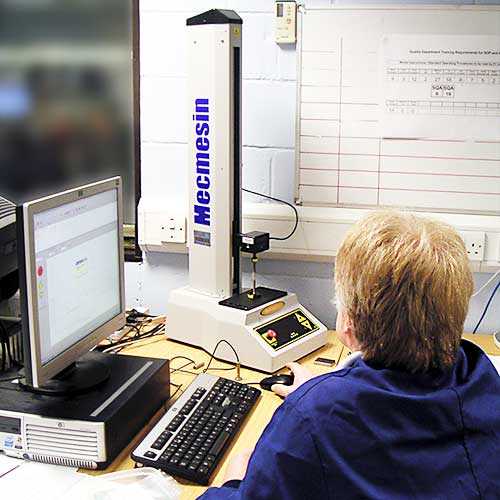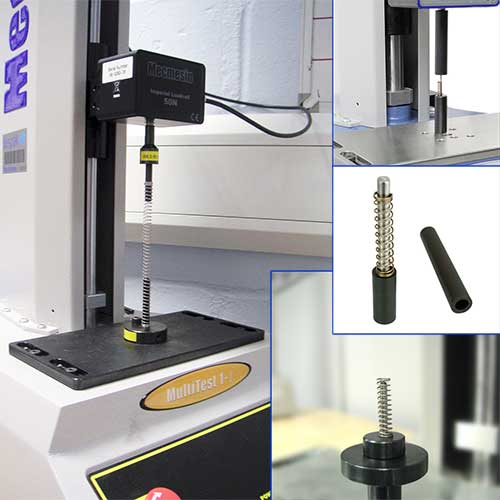
Asthma respiratory device spring QC testing |
Bespak is a leader in specialty medical devices for inhaled drug delivery and anaesthesia. The company manufactures more than 450 million complex devices each year, a large portion of which are inhalers, used to administer precisely metered doses of dry powder or aerosolised medicine to sufferers of illnesses such as asthma and chronic obstructive pulmonary disease. Compressive and tensile helical springs form a key element of the operating mechanism of these devices. As a quality control measure, Bespak performs free height tests and compressive/tensile force tests on the springs to ensure conformance with specifications. This is critical to guarantee correct functioning of the resultant device. The springs, which range from 20 - 120 mm in length, arrive at Bespak's King's Lynn site in the UK in 6 deliveries per week, and 30-50 samples from each batch must be tested. This was previously performed using a gauge mounted onto a manually operated test stand, however, the quality control team at Bespak found their needs outgrew this setup, and a more sophisticated testing solution was required.

Fixtures ensure spring compression force is applied axially |
Mecmesin supplied Bespak with a MultiTest 1-i computer-controlled force testing system, fitted with a 50N Loadcell. This system, coupled with Mecmesin's powerful Emperor™ software, provided fully automated control of all test parameters, removing inaccuracies arising from manual force application. To perform a compression test, the spring is loaded onto custom-made alignment pins. The loadcell (mounted on the system's automated crosshead) then descends at a constant rate, stopping first to record the spring's free height, then continuing to the specified test height, taking 2000 readings every second to accurately map the spring's compression profile. The results are exported to Microsoft® Excel for analysis, and subsequently uploaded onto the company's quality module in SAP for storage. Force profile charts are stored within Emperor™ for later viewing.
"We have used Mecmesin equipment for a number of years to perform compression and tension tests on helical springs intended for use in our respiratory drug delivery devices. We now estimate that every second, more than a thousand people rely on a Bespak device to help them breathe and as our testing requirements have grown, so too has our relationship with Mecmesin. Today we use their computer-controlled test systems to guarantee the quality of our supplied materials."
Peter Haken, Quality Engineer